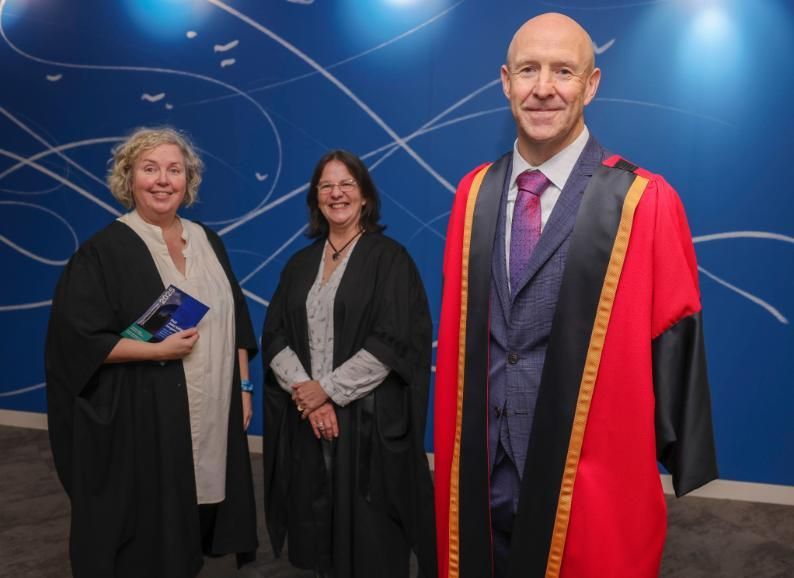Professor John Kelleher delivered his inaugural lecture as Chair of Computer Science at Trinity College Dublin last week, addressing a packed auditorium in the Trinity Business School. The lecture, titled “Aging, Artificial Intelligence, and Outcomes: Modelling Age in Stroke Risk and Patient Prognosis,” marked a significant moment in his long-standing career at the forefront of AI research.
The audience included Dr Linda Doyle, Provost of Trinity, and Professor Sylvia Draper, Dean of the Faculty of Science, Technology, Engineering, and Mathematics (STEM). Members of Professor Kelleher’s family joined colleagues, collaborators, and students to celebrate the occasion, underscoring the personal and academic significance of the event.

A photograph captured the moment, showing (from left to right) Dr Linda Doyle, Professor Sylvia Draper, and Professor Kelleher—resplendent in red ceremonial robes—reflecting the formal recognition of his new role and the esteem in which he is held within the University community.
Over the course of the lecture, Professor Kelleher revisited more than twenty years of research spanning machine learning, natural language processing, and the rapidly evolving field of AI for health. Speaking with clarity and insight, he charted the development of core technologies—from foundational weighted-sum functions and the rise of neural networks to recent efforts to create interpretable, age-sensitive models that can help clinicians better understand patients’ risk of stroke.
Central to his talk was the problem of how age is represented in predictive models. Drawing on collaborative studies with statisticians, clinicians, and computer scientists, Professor Kelleher illustrated how age, while commonly the dominant variable in cardiovascular risk prediction, is frequently misconstrued. Traditional reliance on chronological age can mask the true complexity of an individual’s health profile. His research suggests that more sophisticated, hierarchical modelling approaches can provide a richer understanding, leading to risk assessments that are both more accurate and more equitable across different age groups.
Throughout the lecture, Professor Kelleher emphasised the power of interdisciplinary research, acknowledging the many collaborators who had shaped the work and enriched its impact. He concluded by expressing sincere gratitude for the honour of serving as Chair of Computer Science and paid a heartfelt tribute to his family for their steadfast support throughout his academic journey.
The evening not only highlighted Professor Kelleher’s scholarly achievements, but also celebrated the strength of the ADAPT Centre and Trinity’s leadership in advancing AI research that addresses real societal needs. It was a fitting inauguration, intellectually stimulating, warmly received, and reflective of the values driving the next chapter of computer science at Trinity.
